Posted on 5/31/2023
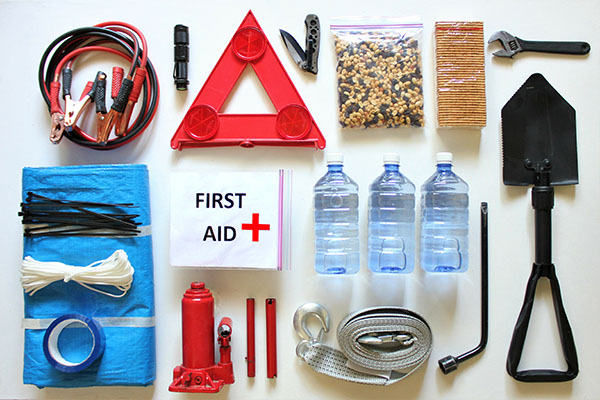
When it comes to traveling by car, having a well-equipped emergency kit is vital for your safety and peace of mind. Whether you're planning a long road trip or simply commuting to work, being prepared for unexpected situations can make all the difference. Below, we will explore must-have items for your car emergency kit, ensuring you're equipped to handle various roadside emergencies. 1. Basic Tools A set of basic tools is essential for minor roadside repairs and adjustments. Include items such as a wrench, pliers, screwdrivers (both flathead and Phillips), and an adjustable crescent wrench. These tools can help you address common issues like loose screws, minor engine adjustments, or battery terminal tightening. 2. Jumper Cables A dead car battery can be a frustrating situation, but with a set of jumper cables, you can quickly get back on the road. Choose heavy-duty, properly insulated cables and ensure they are long enough to reach betwee ... read more
Posted on 4/30/2023
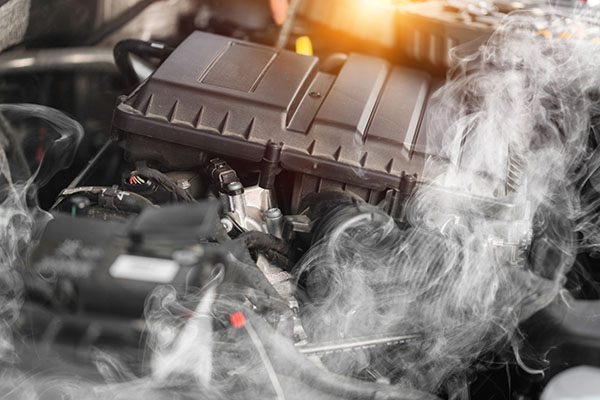
The engine is the heart of your car, which means that it's very, very important. But just like any other component in your vehicle, it tends to have issues and even brakes sometimes. That's why we have made a short list of five warning signs your engine can give before something serious happens. 1. Check Engine Light The most obvious indicator of engine problems is a check engine light, especially if it is flashing. While it is just a simple light, it can mean quite a lot of things, so make sure you don't ignore it or at least visit a shop as soon as you can. 2. Strange And Unfamiliar Noises Unfamiliar noises are never a good sign, especially when talking about engines. It can mean anything from broken parts to forgotten nuts and bolts from a previous repair. Grinding is especially worrisome because it can indicate low oil levels that can cause the engine to fail altogether. 3. Acceleration Is Slow Another obvio ... read more
Posted on 3/29/2023
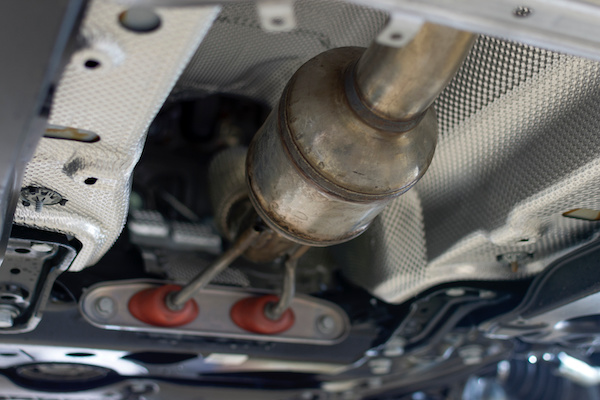
Catalytic converter theft has become an increasingly common problem in recent years, causing a great deal of frustration and expense for vehicle owners. The critical exhaust component is an important part of most vehicles, working to limit the harmful emissions produced by the engine. If you're wondering why thieves are going after this part specifically, keep on reading. What Does the Catalytic Converter Do? This device uses a combination of heat and chemicals to convert harmful exhaust gases into less toxic substances, such as carbon dioxide and water vapor. The converter is made of precious metals, such as platinum, palladium, and rhodium, which are the primary targets for thieves. These metals are valuable and can be sold for a significant profit. In fact, their prices for them have gone up drastically with the hike in inflation. Therefore, catalytic converters are considered an easy cash grab for criminals. Additionally, the design of the catalytic converter itself m ... read more
Posted on 2/27/2023

As a driver, the thing you want most is your and your family's safety. If you want to know a couple of tips and tricks, that will help you achieve a safer drive, keep on reading because we will help with that. Proper Posture Let's start with driving posture. It's first on our list because most people don't take its importance seriously. When you get in a car, the first thing you should do is adjust the seat, even before you put your seatbelt on. Adjust it, so it's not too far or close to the steering wheel, with enough space for your legs. Then adjust the steering wheel if necessary. Side mirrors and the rear-view mirror should be set up so you can see everything on the road and don't have any blind spots. The last thing to keep in mind is standing up straight so you can move around - providing extra visibility. Well-Maintained Vehicle Keeping your vehicle serviced and well-maintained is vital to your safety. Tires should be the right ones for the seas ... read more
Posted on 1/30/2023
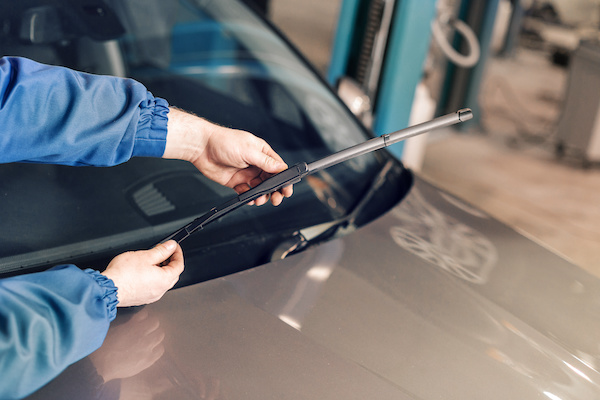
Good windshield wiper blades are key to windshield wiper performance. They give you high visibility when driving through rain, snow, and even fog. Unfortunately, windshield wiper blades are one of the most sensitive parts when it comes to wear and tear. To maintain visibility, we recommend replacing your wiper blades every 6-12 months. Signs That Indicate You Need New Wiper Blades If you can’t remember when you last changed the wiper blades, no worries – you can usually tell when it is time to replace them by inspecting them and evaluating their performance. Streaking on the Windshield If the wipers can’t effectively clear the moisture on your windscreen but instead leaves behind blurry streaks, it is evident that you need to replace them. Chattering or Squeaking Sounds When wipers are noisy, it is basically telling you it is time to let them go. It means that the rubber is dirty or worn off. In some cases, you can remedy the problem by wiping off y ... read more
Posted on 12/30/2022
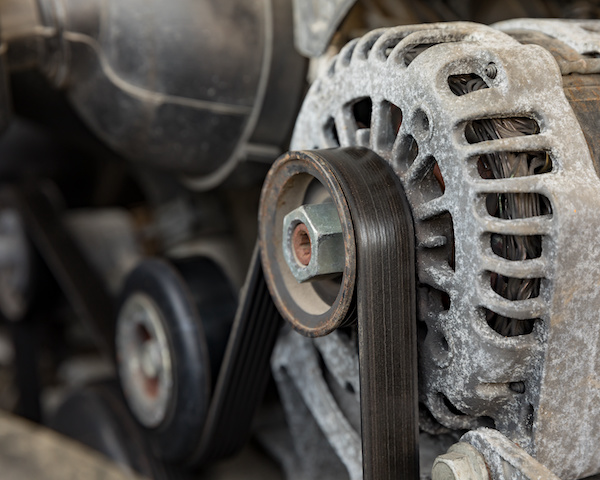
A hose that leaks your car's coolant may cause overheating that may cause further damage to your engine parts. Also, if your water pump belt snaps, your car's cooling system may become ineffective. Your vehicle's hoses and belts ensure proper power transfer through the hydraulic and belt systems. These components also make your car's cooling systems operable. Why are your vehicle's hoses and belts important? The belts in your vehicle help different car systems to work smoothly by transferring power from your car's crankshaft and camshaft to different pulleys that move various engine components. The timing belt helps synchronize the engine valves with the pistons. Without the timing belt, your car won't run properly. On the other hand, the drive or serpentine belt provides power to the power steering pump, cooling fan, and AC compressor. The hoses in your car carry fluids that help cool the vehicle's components or transfer power through hydraulic flu ... read more
Posted on 11/10/2022
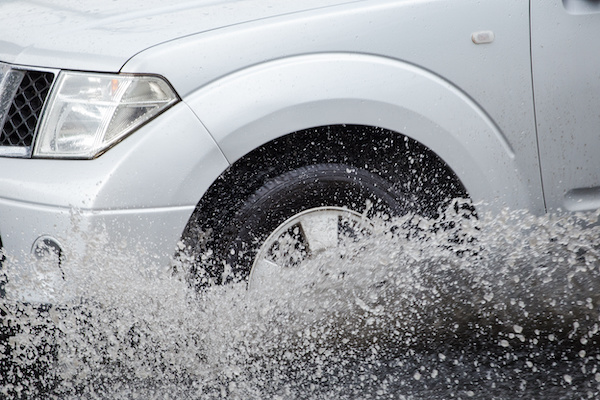
Hurricanes are no stranger to those in Cape Coral, FL, and surrounding areas. They are devastating to many victims as they can do a great deal of damage to our property, including our vehicles. With strong winds, heavy rain, and flooding, you need to be careful. Preparation is helpful and necessary when the time comes. Here are some of our top vehicle preparedness tips for hurricanes: Tip #1: Maintenance When an evacuation is required in the event of a hurricane, your car is going to be what you rely on the most. If you have time to prepare a solid evacuation plan, don’t forget to get your car in the best shape. This includes changing its oil, inspecting its brake fluid, checking its tires, testing the battery, replacing wipers, and more. If you need assistance, please do not hesitate to contact the local experts at George’s Complete Auto Repair. Tip #2: Create An Emergency Kit Next, you’ll want to craft an emergency k ... read more
Posted on 10/28/2022
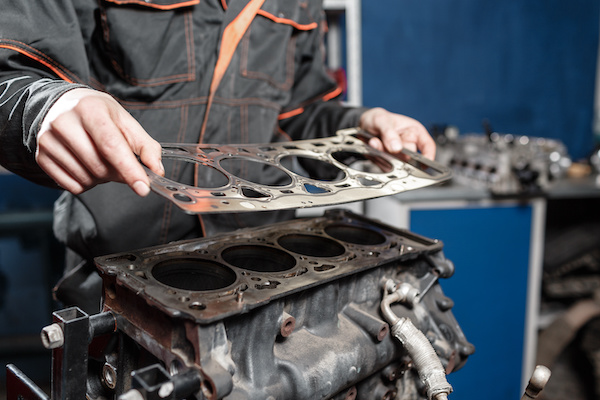
The engine is arguably the most important component in your car. Issues involving the engine are also very costly. But most of the people are oblivious whether a blown engine can be fixed. For those who don't know, a blown engine occurs when this auto component is severely damaged and either need to be completely rebuilt or replaced. And with the modern tech and expertise, if your engine is blown out, it can be fixed. So, What Happens when an Engine is Blown Out? The engine comprises two parts: the cylinder block and the head gaskets. The head gaskets act as a cushion that facilitates the coolant to freely circulate in the engine block. It also plays a crucial role in sealing the cylinders firing pressure. This part of the engine withstands massive pressures and stresses. And eventually, the part can yield to the forces and tap out leading to blown out engine. What are the Symptoms of a Blown Out Gasket? The gasket has perforations that allow the coolant to pass through the en ... read more
Posted on 9/29/2022
.jpeg)
Most cars rely on coolant fluid to help maintain a stable engine temperature. Coolant fluid also has anti-corrosion properties as well. Over time, rust, dirt, and other contaminants can build up in many of your cooling system components that make contact with the fluid. Some examples include the radiator and heater core. When your coolant is no longer clean and effective, your vehicle runs the risk of overheating and causing extensive engine damage. To avoid this, you should maintain the cooling system with regular coolant fluid exchanges or flushes. Coolant flushes are a vital part of preventative maintenance. The process is more cost-effective than having to pay for a brand new radiator or heater core, which will put you out for hundreds of dollars. The process involves draining the dirty coolant out, cleansing the system, and replacing it with new and cleaner coolant. Most drivers don’t know this, but the service is recommended in t ... read more
Posted on 8/30/2022

Since most of us use our cars every day, we know the ins and outs of how it drives. That is why vehicle sluggishness can be quickly spotted. If your car is running slow or quick-responding as it usually does, you may have a vehicle problem on your hands. A laggy car can be annoying, but it can also bring about hazardous conditions. Below are several issues that can be linked to a laggy vehicle. Dirty Air Filter With a clogged filter, your engine will struggle to get a sufficient amount of clean air to perform the combustion process. It may falter when you try to accelerate as the air and fuel mix is unbalanced. Issues with Fuel System A challenge with your car's fuel system, including a faulty fuel pump or dirty fuel injectors, can mess with the flow of fuel. And if your engine doesn’t get the correct amount, your car may feel slower than before. Clogged Catalytic Converter A malfunctioning catalytic converter can likely alter engine performance as the en ... read more